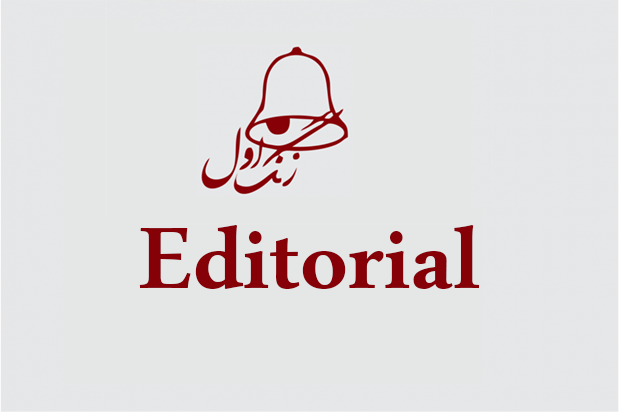The new agreement reached between the heads of the government and the Taliban negotiating team is based on two points. The first point is the change of the two terms “Government of the Islamic Republic” and “Islamic Emirate” to the term “parties to war/parties to negotiations.” The government does not recognize the Taliban and the Taliban does not recognize the government as a “government.” For this reason, Stanikzai and Mawlawi Abdul Hakim have agreed that after this negotiating delegation, the two sides will enter into negotiations only as “parties to war/warring parties.”
The second point is that the Doha Agreement, the Kabul-Washington Joint Declaration, and the March 10 Security Council Resolution are the basis for peace talks. Earlier, the Taliban refused to use the Kabul-Washington Joint Declaration as a basis for negotiations. These agreements, which were the result of a face-to-face meeting between Stanikzai and Mawlawi Abdul Hakim, were not discussed until late Sunday at a plenary session of the two sides’ delegations. The reason was Masoom Stanikzai’s trip to Kabul to discuss and consult leaders about these agreements.
The agreement between the government and the Taliban teams on these two points is the result of a reciprocal kind of debt. The Taliban did not previously recognize the government as a state. By reducing the government to a “militant group / one party in the war/negotiation,” Mawlawi Abdul Hakim has achieved his goal. By contrast, Stanikzai, by accepting the position of “party to war/negotiation” for the government, has succeeded in paving the way for the negotiations on a joint Kabul-Washington declaration. The government negotiating team and the Taliban are pleased with this interaction and appear optimistic about breaking the deadlock.
In this way, according to Stanikzai and Mawlawi Abdul Hakim, a path has been opened to overcome the deadlock of the negotiations. But what is unclear is what Stanikzai’s position will be on his return to Doha. According to reports from Qatar, with Stanikzai returning to Doha, these outcomes will be confirmed by a joint general meeting of the two sides. This will be followed by a process of final peace talks and a debate on setting an agenda.
But the point to consider is, with what authority did Masoom Stanikzai remove the title of government from Islamic Republic of Afghanistan and reduce it to the level of a “warring group”? Removing the title of government from the “Islamic Emirate of the Taliban” is justifiable. The question is, why has the “Government of the Islamic Republic of Afghanistan” been reduced to a militant group or an armed group fighting the Taliban?
The US-Taliban agreement reached in Doha on February 29 explicitly states that the United States does not recognize the “Islamic Emirate of the Taliban” as a state. Subsequently, the March 10 Security Council Resolution emphasizes that the organization does not recognize the “Islamic Emirate of the Taliban” as a government. On the other hand, the Kabul-Washington Joint Declaration referred to the government based in Afghanistan as a legitimate government and said on the part of the United States, it would recognize it as the official government of Afghanistan. This point is also explicitly emphasized in the Security Council Resolution. Therefore, the reduction of the government’s position to a militant group similar to the Taliban cannot be justified.
Stanikzai seems to have made a mistake in his calculations. The Taliban Islamic Emirate did not have political legitimacy in the past and does not have legitimacy now as a government. Hence, the Taliban are not losing anything by reducing the term “Islamic Emirate” to a militant group; because the “Islamic Emirate” as a government has no external existence and the Taliban are therefore not worried about losing this title. They only have a tactical view of the title and are aware of it when there is a dispute between two governments or two systems. For this reason, the government has no obligation to recognize the Taliban under the name “Islamic Emirate.”
On the other hand, the government in power is not a political group or a military group. This state has a government, a nation, land and sovereignty. The United Nations has recognized it. Its government is elected and based on the people’s vote. The world interacts with it and it is committed to abiding by international treaties. How can such a government be reduced to a militant group at war with the Taliban? Hence, this part of the Stanikzai agreement with Abdul Hakim needs to be reviewed.
One of the most important principles of negotiation is the recognition of each other’s realities. If the Taliban is in favor of principled negotiations, it must recognize the current government as a government. Of course, this does not mean that the Taliban will surrender to the government. Although its war against the government has been proven to be illegitimate, this group can pursue its political and ideological goals through dialogue. The Taliban can achieve nothing but war from the rejection of the government. Now that this war is about to end, what is needed is an acknowledgement of each other’s positions. Otherwise, the two sides cannot reach a peace agreement.












